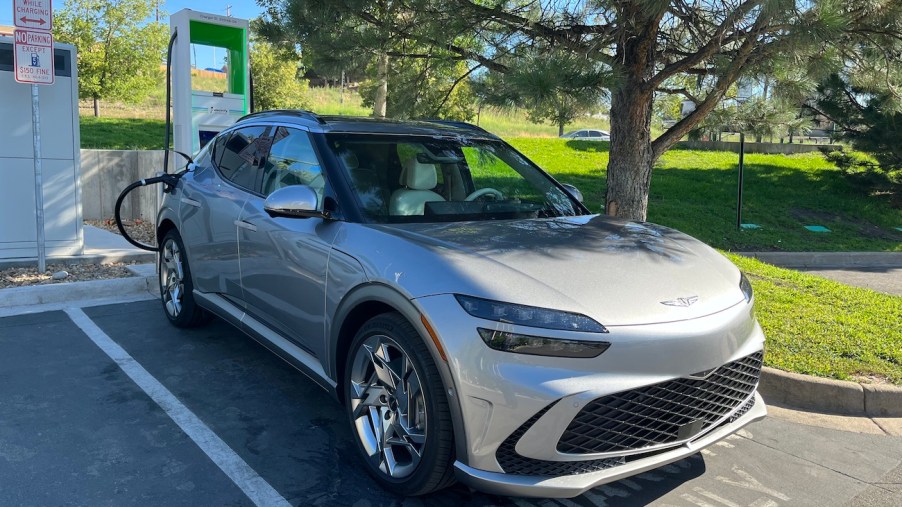
How Long Does It Take to Charge a 2023 Genesis GV60?
The 2023 Genesis GV60 is a quirky electric SUV that’s filled with a lot of futuristic features. The GV60 is an oddball for sure, but it’s also very comfortable and a blast to drive. I have the Performance version for the week with the dual-motor setup, which can rocket the car up to highway speeds in a few seconds.
However, that fun starts to wane when the battery power gets low. Fortunately, I haven’t had much range anxiety after learning the best way to charge it. Here is how long it takes to charge a Genesis GV60.
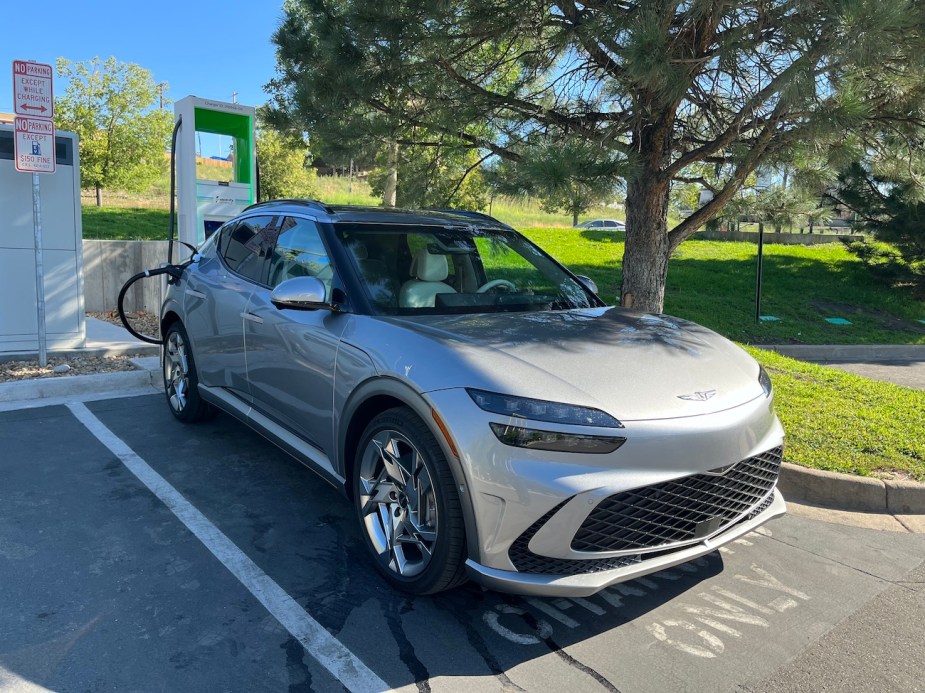
Using a household outlet to charge a 2023 Genesis GV60 is practically pointless
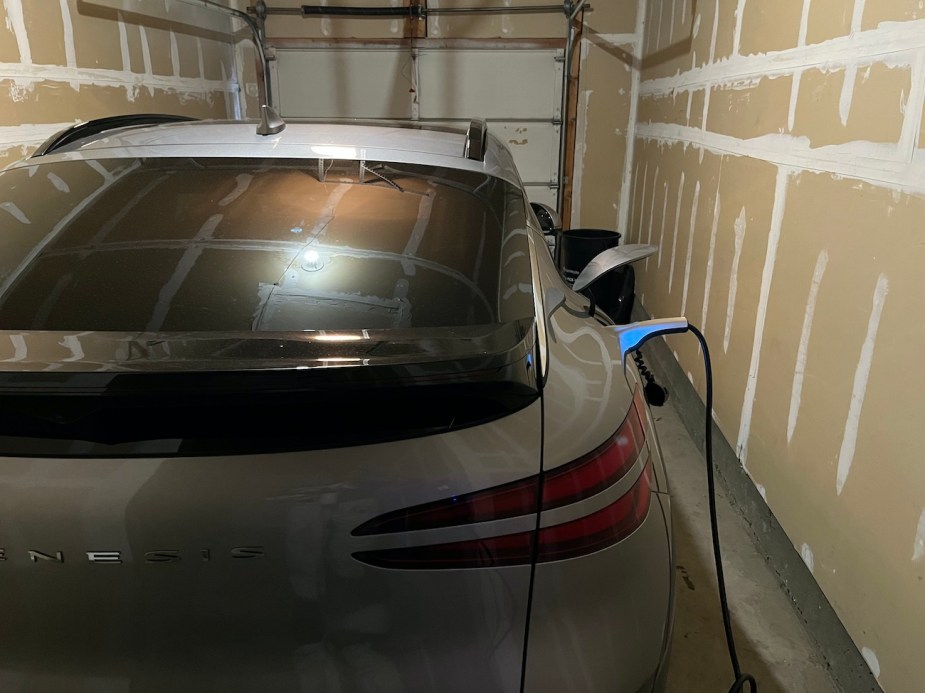
I first tried charging the 2023 Genesis GV60 using a household outlet, as most EV buyers would likely do. According to Genesis, it will take around 68 hours to charge the GV60’s 77.4 kWh lithium-ion battery pack from 10% up to 80% using a standard 120-volt outlet. When I plugged the car into my garage’s outlet, while it was at 51%, the car said it would take 51 hours to charge completely.
I plugged it in at night and figured it would at least recoup around 10-15 miles of range in the morning. But I was wrong. The next morning, I returned to the car, unplugged it, and read the display. It had gone up to a whopping 52% after 10 hours of charging. Charging at only 0.6 kW, it didn’t even add enough miles to get to the grocery store and back.
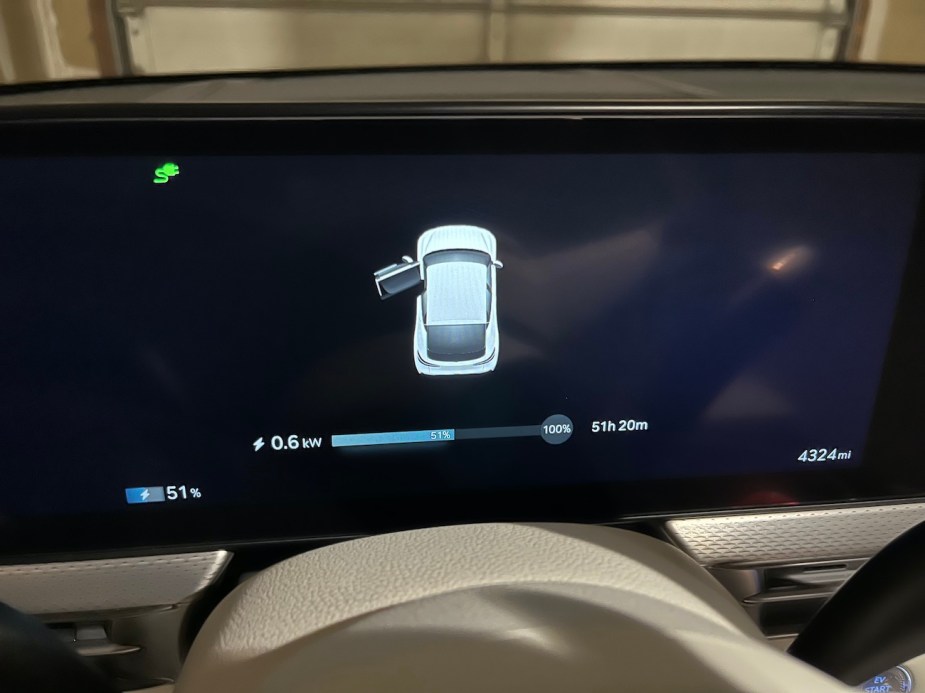
I found a better charging source thanks to Electrify America
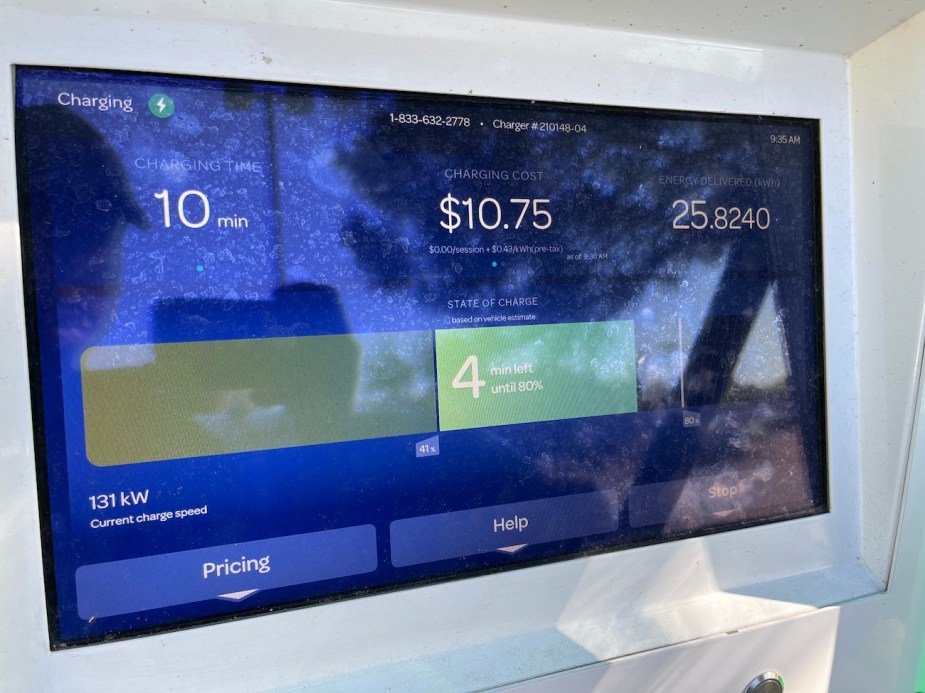
Considering I was scheduled to drive the Genesis GV60 around for a few more days, I knew I needed an adequate charge. I downloaded the Electrify America app and mapped out the nearest station. Fortunately, there was a charging station in the parking lot of my local grocery store.
Once there, I plugged the car in, went through the screen prompts, and the car started charging. To my surprise, the Level 2 charger was charging it at 172 kW, and the car said it would take 11 minutes to get to 80%. Getting to 100% would take 32 mins since the last 20% takes longer.
Instead of waiting by the car, I went into the grocery store to buy a few things, as most EV buyers would likely do. When I made it back to the car, it had been charging for a total of 20 minutes. In that time, the Level 2 charger brought the car up from around 52% to 90%. That quick re-juicing time was due to the CCS – or combined charging system connector – which combines a Level 2 (J1772 standard plug) with a DC fast charging connector.
The combination yields a really fast charge that would have only cost me $17. Fortunately, it ended up being free. I was impressed, to say the least. I was also relieved that I wouldn’t have any range anxiety for the rest of the week.
Is it worth it to charge a Genesis GV60 at home?
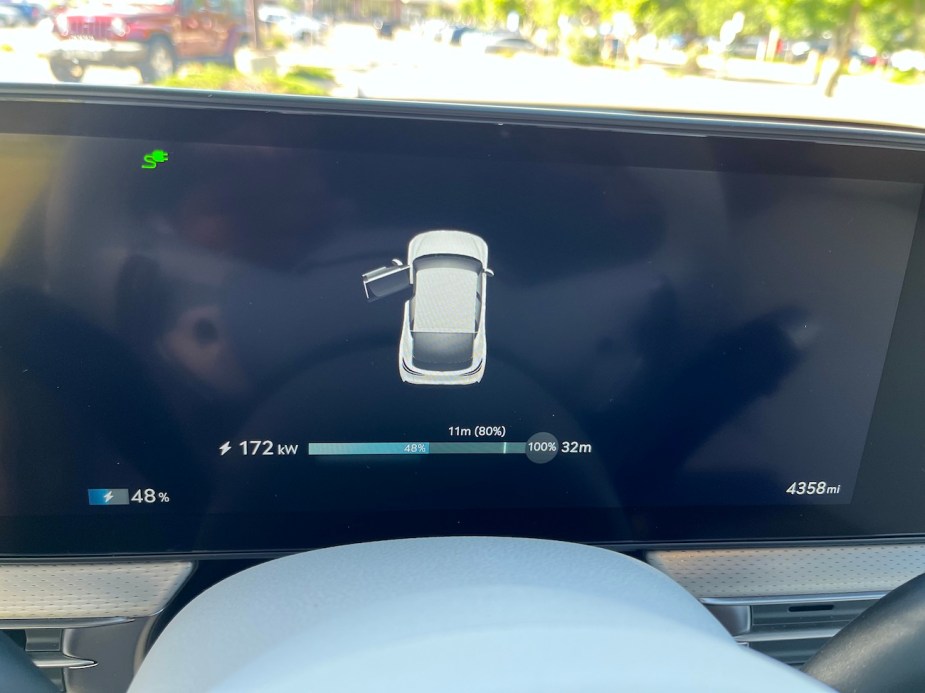
In my experience, it’s not worth using a household outlet to charge the Genesis GV60. I’m guessing it actually cost me more on my electric bill than it was worth in terms of the mileage I gained overnight. In that case, I can only recommend using a Level 2 public charger, or perhaps even a Level 3 charger, which can charge the car from 10% up to 80% in 18 minutes at a rate of 250 kW.
If you plan on purchasing a Genesis GV60 or any other electric car, then I recommend at least purchasing an at-home charger so that it can get an adequate charge overnight. Otherwise, you may be in for a shocking surprise when you find the car only gained five miles after 10 hours of charging.



